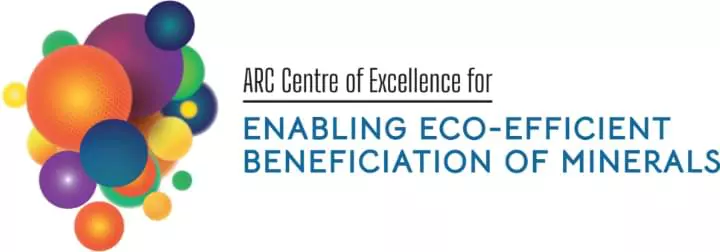10th February 2023
Newsletter - COEMinerals shares Centre research & demonstrates ground breaking technology to visiting international sustainability delegation
Expanding COEMinerals sphere of influence, Centre research and innovation have been included and technology inventions demonstrated as examples of world-leading, science-based sustainability innovation during an International Symposium tour associated with Decarbonisation of the Steel Industry, hosted at University of Newcastle, NIER precinct.
Extract:
On a tour of NIER’s 3.8 hectare precinct, Laureate Professor Kevin Galvin, Director of the ARC Centre of Excellence for Enabling Eco-Efficient Beneficiation of Minerals, accompanied by PhD students and team members, demonstrated several projects the centre is working on, including the Reflux Classifier. The technology is an innovation in partnership with FLSmidth which significantly reduces the environmental footprint of the minerals processing stage where critical minerals are separated from the surrounding ore, known as ‘beneficiation’.
–
Full (‘NIER news’) article of 10 Feb 2023:
Decarbonising the Steel Industry; Experts come together at the International Symposium for Sustainable Cokemaking and Ironmaking
World-leading researchers and industry recently joined together at the International Symposium for Sustainable Cokemaking and Ironmaking to discuss technological developments to decarbonise the steel industry.
The Centre for Ironmaking Materials Research (CIMR), led by Professor Tom Honeyands and Dr Arash Tahmasebi, received support from the ACARP, BHP, Hatch, the Association for Iron and Steel Technology, and the University to host the event over two days at the Newcastle City Hall this week.
Coal is used to generate heat and to make coke, which is instrumental in the chemical reactions necessary to produce steel from iron ore. The Iron and Steel Technology Roadmap, released in 2020, states the steel industry uses coal for 75% of its energy demand and is responsible for 7% of energy sector CO2 emissions.
With global demand for steel projected to increase by more than a third through to 2050, the Symposium comes at a crucial time. Alternate processes need to be developed and implemented to reduce the environmental impact of this essential sector.
Keynote speakers included Dr Paul Zulli, Director of the Steel Research Hub from the University of Wollongong, Dr Sangho Li, Senior Vice President of POSCO Technical Research Labs and Jeanne Els, Senior Consultant for Hatch. International industry and academic expertise from Austria, Netherlands, China and Japan also contributed valuable knowledge on metallurgy and research commercialisation.
A trip to NIER was also offered as part of the Symposium, where Professor Paul Dastoor introduced the Institute’s objective of delivering solutions for global challenges in the priority areas of energy, resources, food and water. On a tour of NIER’s 3.8 hectare precinct, Laureate Professor Kevin Galvin, Director of the ARC Centre of Excellence for Enabling Eco-Efficient Beneficiation of Minerals, accompanied by PhD students and team members, demonstrated several projects the centre is working on, including the Reflux Classifier. The technology is an innovation in partnership with FLSmidth which significantly reduces the environmental footprint of the minerals processing stage where critical minerals are separated from the surrounding ore, known as ‘beneficiation’.
Dr Andrew Maddocks, a Principal Researcher of the Priority Research Centre for Frontier Energy Technologies and Utilisation team, provided insight into the team’s Hydro Harvester technology, as well as the projects they are working on in Sustainable Aviation Fuels.
Hosted company, Mineral Carbonation International, explained how their Carbon Plants are enabling a circular economy by safely capturing and converting industrial CO2 emissions into solid bulk materials, which can then be used in new low-carbon products for construction, manufacturing and consumer markets.
Dr Tahmasebi gave an overview of the CIMR’s capabilities in cokemaking and ironmaking research with a tour of their Burden Lab. Dr Tahmasebi explained some of the centres’ work that focuses on optimising the sintering stage of ironmaking, a process in which loose, fine particles are converted into a solid coherent mass by heat and/or pressure, as well as increasing the fundamental knowledge of the coal to coke transformation.
BlueScope Steel, one of our industry partners, also hosted a group of 26 participants for a tour of their Port Kembla Steelworks. The tour included visits to their cokemaking, sintering, blast furnace and steelmaking operations.
The Symposium and tours provided a greatly needed opportunity for world leaders in the cokemaking and ironmaking fields to collaborate on creating a more sustainable resource future.

